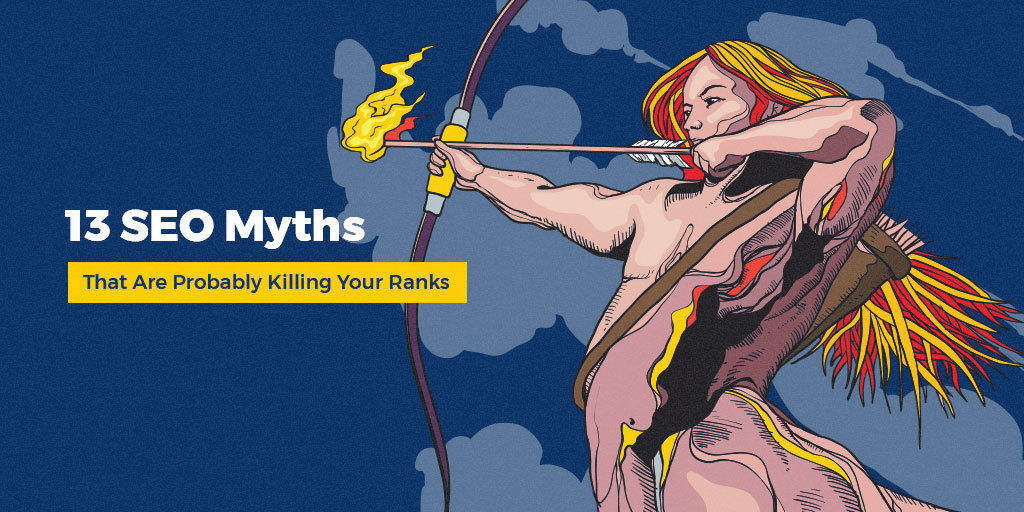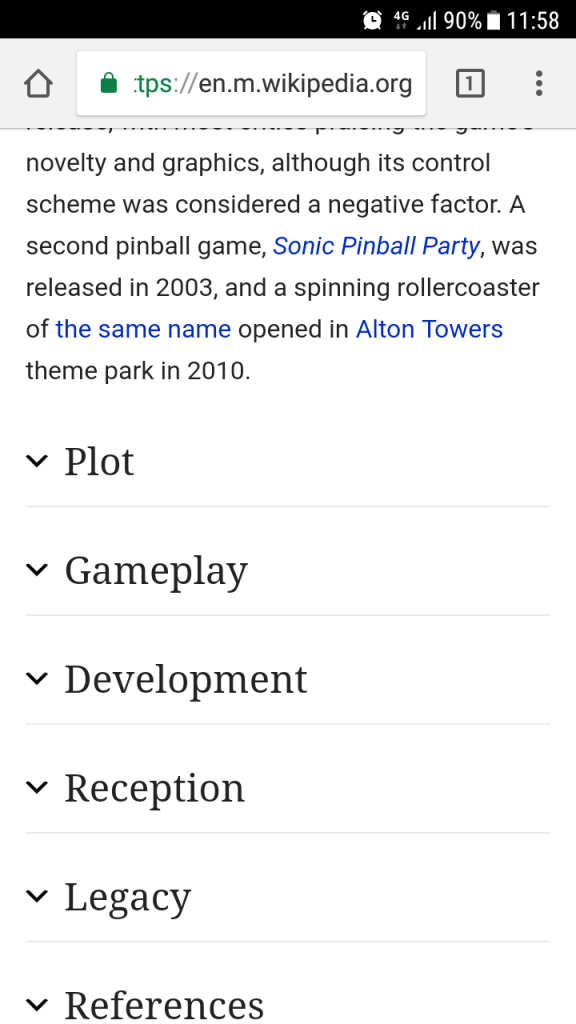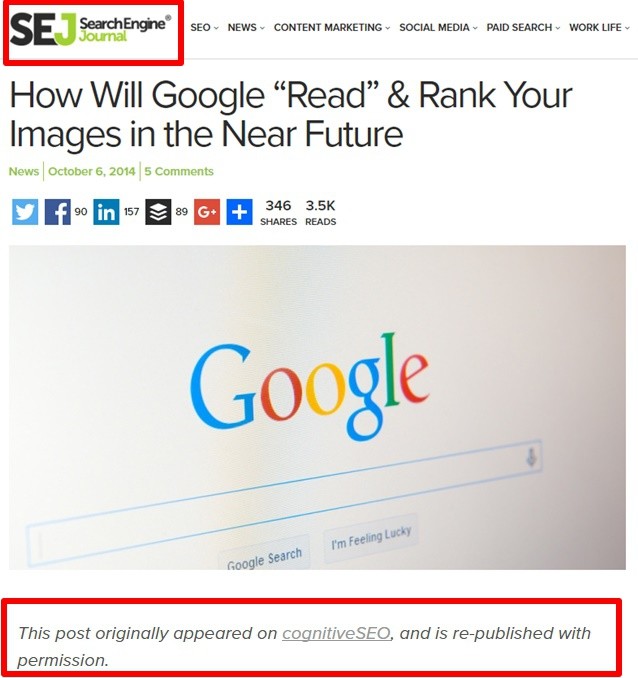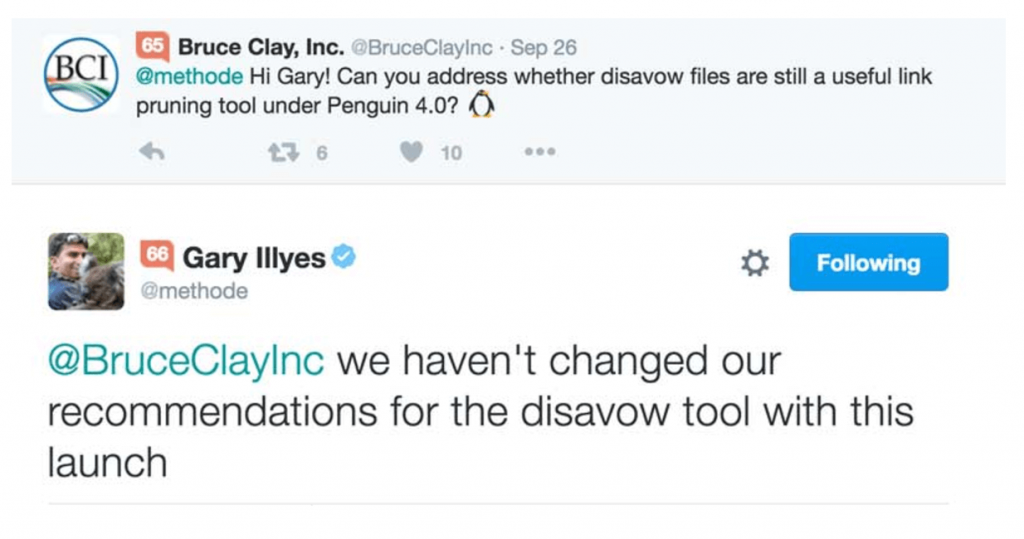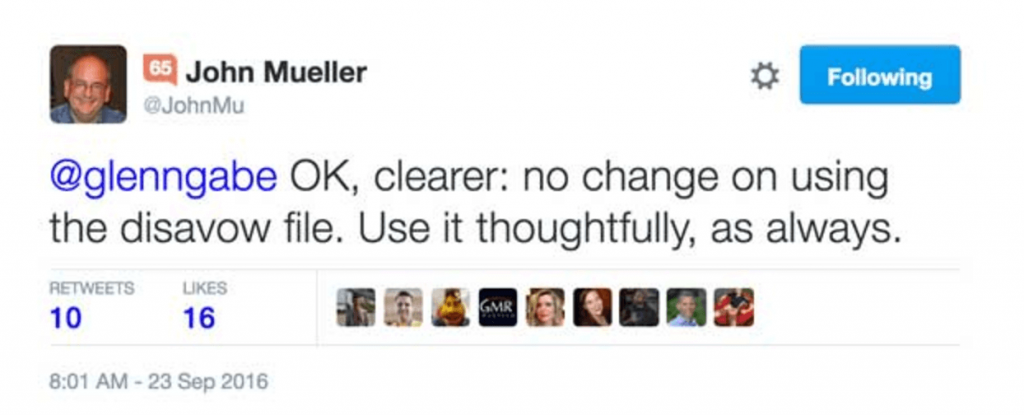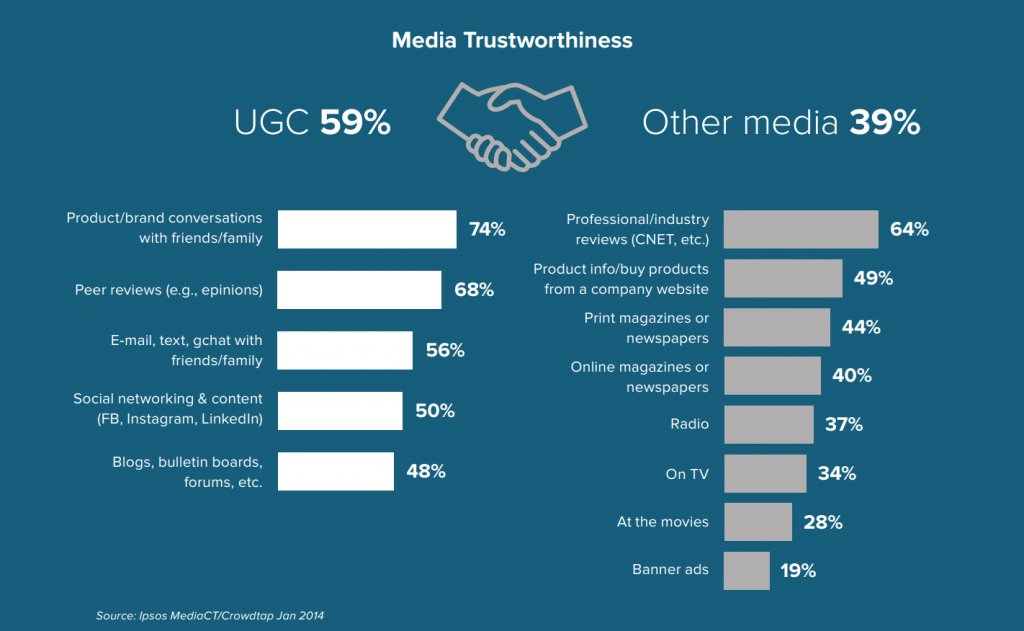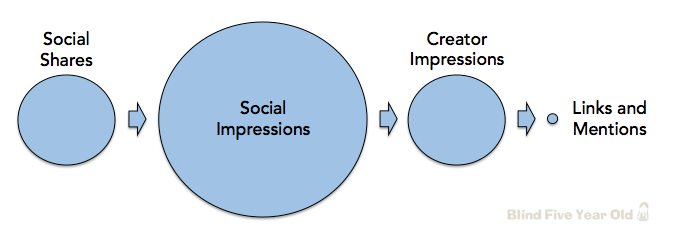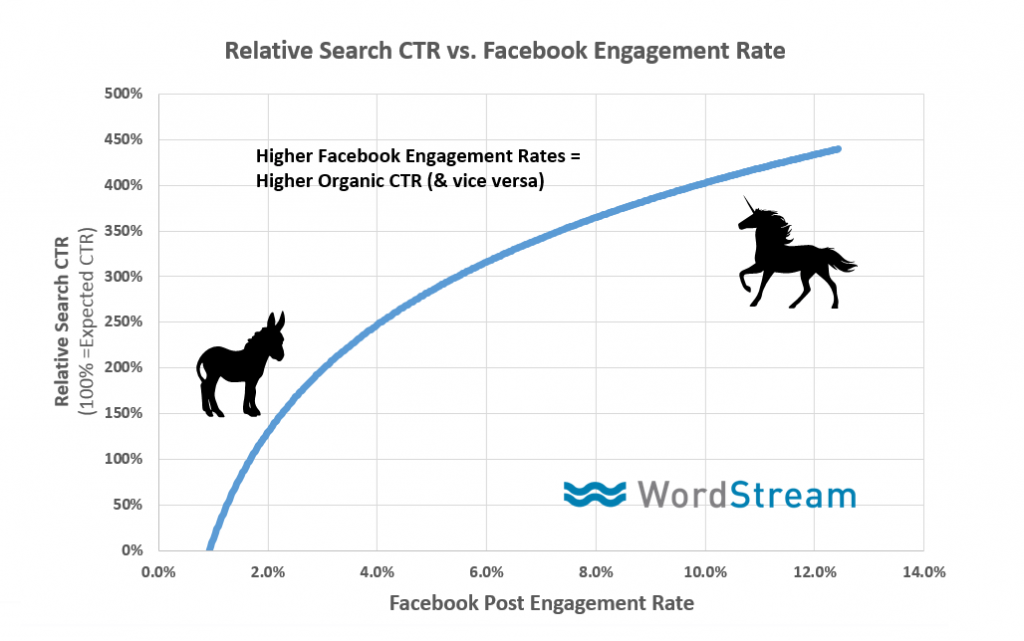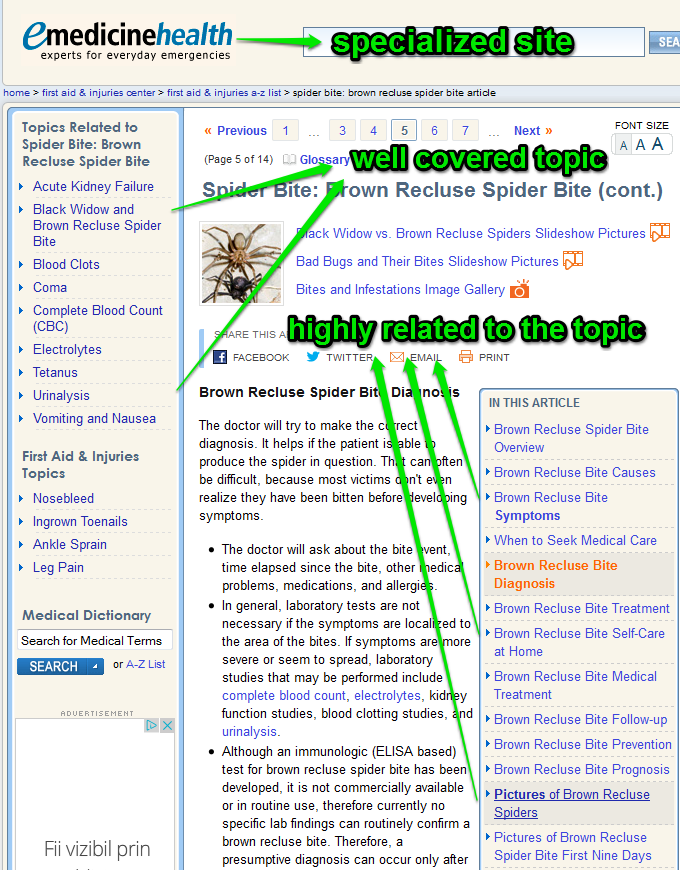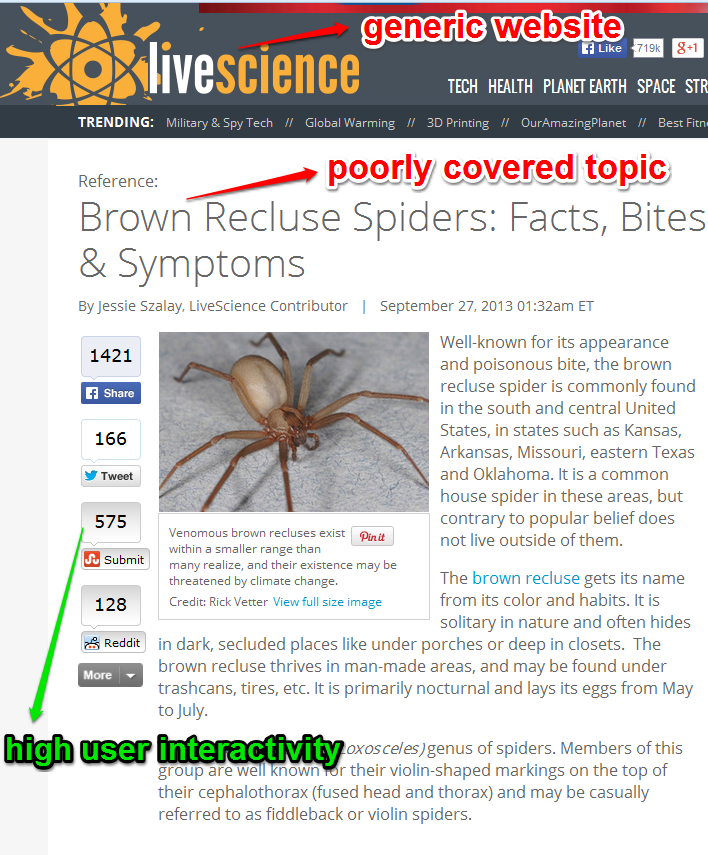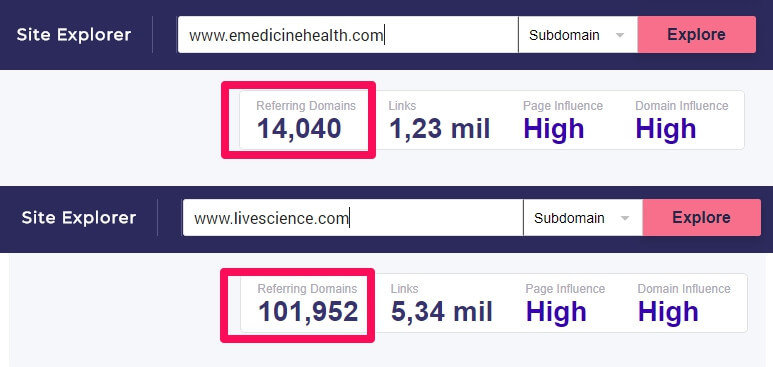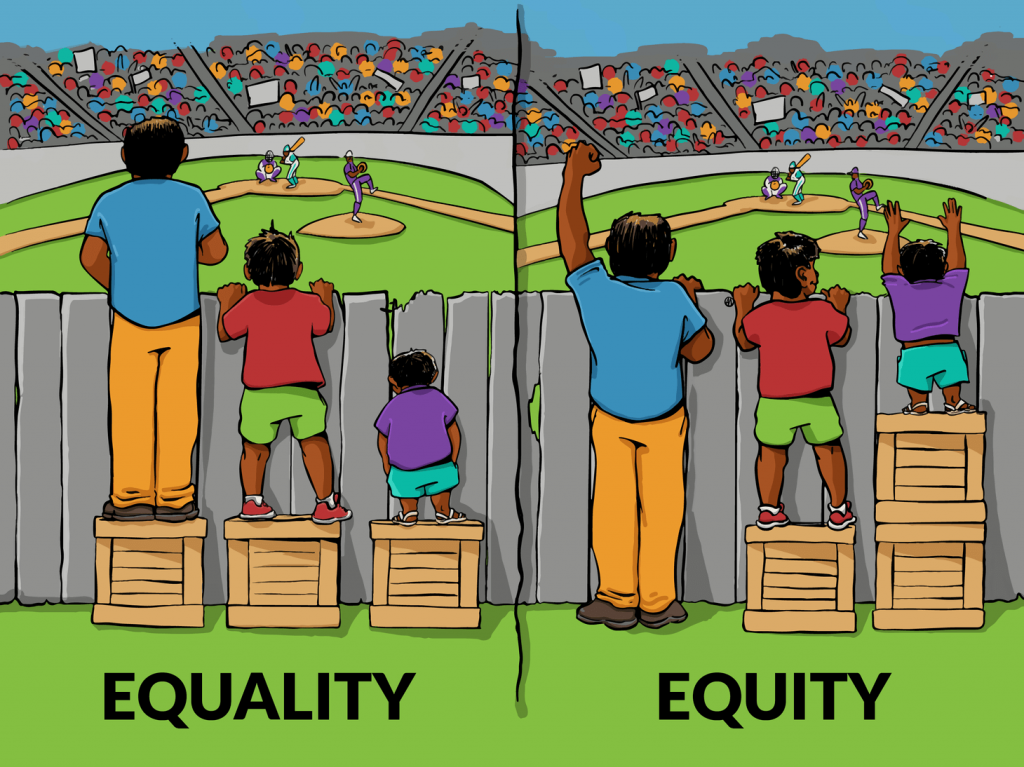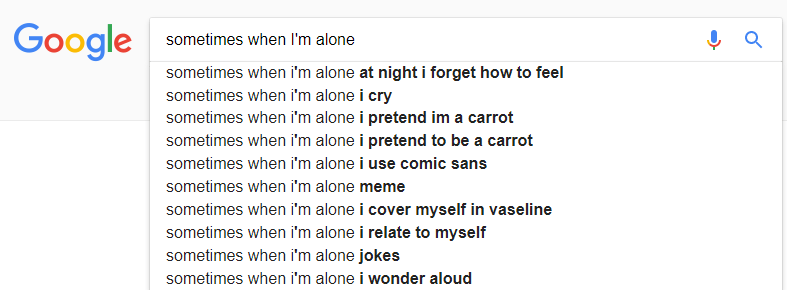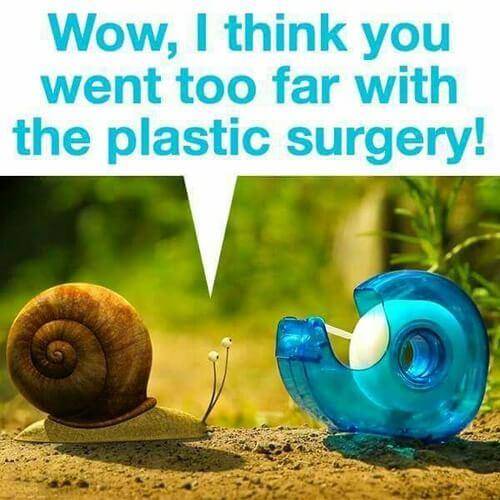We decided it was about time we teamed up with bright minds in the marketing and SEO industry and gained some exclusively valuable knowledge right from their mouths.
Hence this is how cognitiveSEO Talks: on Search and Traffic was born. It was not born from a wish upon a star only, but also with hard work and planning.
Now everything you wanted to know about SEO, but were too afraid to ask is right here, ready to be played and listened to wherever you are. You’ll definitely find a good handful of thoughts to munch on throughout the day.
On this first episode of cognitiveSEO Talks: of Search and Traffic, we had the utmost pleasure of having SEO and content marketer Martin MacDonald as our guest. Martin was born in Scotland, raised in Spain, and he’s currently residing in Silicon Valley. He got interested in the inner workings of search engines in the early 2000s, leading to a diverse career in SEO.
He’s given countless conference talks, published widely recognized theories and techniques, and developed a global reputation. He has worked as a Senior Director of SEO and Content Marketing for the brand Expedia, responsible for the Orbitz and CheapTickets brands, two of the largest online travel agencies in the US. Prior to this, he was Head the SEO for Omnicom, one of the world’s largest agency groups. Now, he’s offering SEO consulting tailored towards Fortune 500 and fast-growth businesses.
We sat down and talked about all digital marketing and SEO stuff, we laughed and teased each other, tried to predict the future of SEO, we compared periods and disagreed previous acts and mindsets in online marketing, in short, got way richer with new loads of marketing wisdom.
Metaphorically speaking, Martin is our lucky charm – he met him when we were launching cognitiveSEO, and he’s also joining us in our baby steps in launching an extensive series of marketing wisdom nuggets.
Tackled Topics :
-
Martin’s activity as a content marketer and SEO consultant
-
What is SEO (explained in a 5-year-old kid language)
-
Martin’s success story in solving complex marketing issues
-
Are links going to disappear anytime soon in terms of ranking signals?
-
What should SEO studies really be about?
-
The next big things that will change the SEO landscape for good
-
What clients should SEO consultancy agencies avoid?
-
On travel marketing
-
Change of mindset and behavior in digital marketing beginning late 2000 until today
10 Marketing Nuggets:
-
It’s much more scalable, realistically easier, and safer these days to just actually do SEO right, rather than do it the wrong and hacky way and take the risk. 33:02
-
Doing SEO it’s no longer about finding ways of hacking the system, it’s about providing the best possible answer, but providing it in the most efficient way possible to Google. 10:04
-
Fundamentally SEO is a simple thing. 16:20
-
It’s about the branding. It’s not about the product, it’s it’s about moving away from the commodity. To try to massively differentiate myself. 60:37
-
A link within the content of a blog post of an average site is a much better link than a link on a Forbes article. There’s a much greater chance that is passing PageRank along. 28:45
-
If you’re absolutely new to the world of SEO then SEO studies are really important. 36:24
-
What we do as SEOs is studying the way that algorithms work and adjusting your resources so that they best match those algorithms. 42:42
-
SEO itself will never die; it will just be applied to different things over and over again. 44:46
-
The beauty of SEO, the thing that keeps it interesting, is it’s constantly changing and we’re constantly going through this pattern, this cycle. 46:40
-
The whole concept and ethos of what a link is has radically changed over the last 10 years and it will certainly continue to do so. 26:52
Video Transcript
Razvan: Hello, everyone! I’m Razvan Gavrilas from cognitiveSEO, and my guest today is Martin MacDonald.
Martin is a great guy that I met initially in 2011 when we were at a conference in Poland. I was just launching cognitiveSEO at that time. Let me do a brief intro about you, Martin, and then I’ll let you add some stuff to it.
Martin: Absolutely!
Razvan: Martin was born in Scotland, raised in Spain, and he’s currently residing in Silicon Valley.
He became interested in the inner workings of search engines in the early 2000s leading to a diverse career in SEO. Having the programming background, it steered him towards technical search engine optimization, a field in which he’s given countless conference talks, published widely recognized theories and techniques, and developed a global reputation.
He has worked as a Senior Director of SEO and Content Marketing for the brand Expedia, responsible for the Orbitz and CheapTickets brands, two of the largest online travel agencies in the US. Prior to this, he was Head the SEO for Omnicom, one of the world’s largest agency groups with over 60,000 staff globally.
At the moment, he’s offering SEO consulting tailored towards Fortune 500 and fast-growth businesses looking to take advantage of his knowledge and experience in enterprise SEO.
So Martin, what would you add to this?
Martin: It’s a very grandiose introduction and it makes me sound much more important than I am. So I thank you very much for the lovely welcome! It certainly was 2011. I believe that was Poznań but it might have been Warsaw…
Razvan: Yeah, Poznań it was.
What were you working on then, or what were you doing if you were an SEO consultant at that moment?
Martin: Yeah… In 2011, I would’ve been working for Omnicom actually. So I worked for Omnicom for about a year, then moved into Expedia in early 2012 (January or February of 2012 I started at Expedia which I’ve only recently left), and prior to that, I’d worked for a company called Seatwave in the UK, who sold tickets …
Razvan: You were in the UK at that time, you weren’t moved to the US from what I understand…
Martin: Yes, absolutely. I was in the UK at the time. I’d only recently moved to the UK actually, at that point, because I’d spent the previous 25 years living in Spain and I’d always worked in Spanish and moving back to the UK was a bit of a culture shock for me because, you know, it’s very cold, and it rains all the time, and the food is very boring, and it was all of the things that you would expect when you moved to Northern Europe, that kind of thing.
So yes, I was … certainly, at that point in time, anybody invited me to go anywhere in the world to talk about SEO, and I was on a plane out of there, so that’s how we met and…
Razvan: Yeah, you have a site, from what I recall, seoforums.org, and I know you sold it after afterward in …
Martin: Yeah, yeah, I think for something like $60.000, which it was a domain that I paid 80 bucks for 14 months previously, so that was a nice little ROI play but, you know, this was what’s interesting.
I was discussing this … the day before yesterday, I was having a conversation with a friend of mine in the UK who is also kind of an old time retired spammer because, look, – it’s been a long time, I mean, I’ve been in the corporate world now for 10 years and I’ve not done any of this stuff but certainly for the 10 years beforehand I was doing a lot of what Google would now consider to be spam, whether that’s content spam or link spam – and I was having this conversation with a friend of mine who also used to do the same. And he now produces absolutely top-class tools for corporate to enterprise mainly to look at their backlink profiles to determine how much of it is spam, what needs to be cleaned up and things like that, and all factors.
So again, it’s another old spammer that’s turned into a game-keeper, if you like, and we were talking about the old days and we thought – ‘Hey, – you know, I’ve just thought “I’ve not looked at seoforums.org backlinks for a long time, let’s have a look and see!” and currently, according to Majestic, it has (I think it was 1000 route linking domains today, and that was down from 27 million) so when you look at this on a link building perspective, the fact that we could get away with, then building 27 linked to a domain over the course of a year and for it to rank #1 almost across the industry for all its keywords, you just couldn’t get away with that now. The world has moved on a lot and the results in Google got better because the …
Razvan: Yeah, Google advanced a lot in detecting the spam in terms of detecting the spam and the unnatural links and all this stuff …
Martin: Very much so, very much so! You know, the world has moved on a bit and, let’s be fair, it needed to because having the ability to be able to do what we used to do isn’t something that would have been supportable long term by any search engine. And Google probably fixed most of their problems between 2012 and 2015, let’s say, but realistically, what’s interesting is that it was kind of the time that Bing were trying to take market share from them as well, and I had to question whether or not they would’ve invested the time and effort into Panda, into Penguin, into all of these algorithmic changes that they’ve done, were it not for the threat of competition at the very least.
Razvan: Interesting scenario.
Martin: Mhm, we’ll see, we’ll never know. But here we are in 2017 and the results are much better than they used to be.
Razvan: Okay. I know that digital marketing can be very complicated sometimes, that’s also obvious from how you talked about it here, on how much it advanced since 2011, not to mention since 2007, for example, when you spammed a page and it sat there for weeks, months in Google …
Can you please tell me as if I were a five-year-old kid what exactly you do now for a living, what is your current job, moving from spam, and the consulting, the travel?… What’s your current status?
Martin: So to explain SEO to a 5-year-old at this point and so on… Now, to be clear, I actually have a 9-year-old and a 4-year-old so this is a conversation I’m somewhat used to.
If you went back in time ten years ago, I think, to the times that you were talking about when it was very spammy, I think it would have been really difficult to explain to a 5-year-old what the hell we were doing. Because it just didn’t bear any sense in reality. The marketing items that we used to do back then were very specific to just SEO and didn’t work out for anything else.
But the world has moved on, the world has changed very much since then. So, to a 5-year-old, the way that I would explain SEO is (and the requirement here is that the child knows what Google is in the first place, but assuming the child knows what Google is) the correct answer is when you search for something online, Google is returning the 10 best results for that query and the important thing is knowing exactly what it is that Google likes so that you can create that on your website and you can rank as competitively as possible within those results. So, if you provide the best possible answer to the questions that people are asking, then Google will return you first.
And the SEO is about that, is about making sure that you’re 1, providing the best possible answer and 2, you’re providing it in the best possible way for Google. And it’s that second piece, the providing in the best possible way, that many people seem to forget, and you can look at many sites that have got great content, for instance but don’t particularly write well, and the majority of the time that they’re not ranking it’s, typically in my experience, because of the way that they’re presenting those answers to Google and to the crawlers. And by that, I don’t mean On-Page SEO. I’m talking about the overall architecture of the entire site: how quick it is, how well organized it is, how the internal link structure is defined, all of these little things (I’m going outside of the scope of what I would tell a five-year-old here)…
Razvan: Yeah, yeah, I noticed that …
Martin: You see, my 9-year-old knows so much about SEO because he has this conversation with me all the time. The truth is that the point in what we do now is no longer about finding ways of hacking the system it’s about providing the best possible answer, but providing it in the most efficient way possible to Google. So, the simplest answer is exactly that, but that’s taking the very simplistic view of what we do and minimizing it for consumer purposes. It is true to say that even though what we have done has moved on, from the kind of tactics we used to do it has become much more complicated over the last 10 years as well because there are so many more options available to us at this point in time.
Razvan: The competition is much, much stronger in any particular market, in any particular niche. Everyone is trying to get some rankings now, and it’s harder and harder to get up there. If in, let’s say, 2007-2011 you could get the site up in the top 10 positions in a couple of months, since you were buying the domain, but at this point in time it’s not impossible if you have a great idea and generate virality or some unique stuff, you may get there, but for the same normal business, 2007 versus 2017 bears a major difference.
Martin: I think the other major difference as well … If we go back and turn 10 years to now, is so…
Look at Amazon ten years ago, okay? Amazon were, at that point in time, respected as being this plucky new online player that we’re using on the Internet to take on traditional business, and now Amazon are a traditional business, they are, you know, the biggest corporate entity in the world.
What’s interesting is, whereas websites used to be able to compete against the big massive multinational corporations, the world has moved on, and the websites that have won that battle are those big national multinational corporations.
So the whole very fabric of the work has changed and I think it’s very fair to say that 10 years ago there was massive opportunity for very small players, for mom-and-pop shops, to build a website and to take market share quickly and immediately from the rest of the industry, whatever industry that is.
I’m not talking about SEO here, I’m talking about, I don’t know, the board game industry in France, for people that want to buy board games and chess sets, you know, just choose something random.
10 years ago, any shop could have put together a nice website and marketed it successfully by an SEO or by PPC, and built a large and competitive business around it. The last 10 years, basically most of the opportunities in that sense, have been expanded and/or large companies have actually got themselves in gear and have now created websites that are compelling enough, that are indexed enough, so there isn’t that vacuum of opportunity that there used to be.
The whole world has moved on a lot since then and certainly, it’s harder to get opportunity as a small player now, but that’s not to say it’s impossible, that, you know, it still exists as a possibility. You just now need to be really clever and do it really well or, as before, you could luck your way into it but that’s less likely now.
Razvan: Yeah. I think you have over 15 years of experience in SEO, and I’m sure you’ve seen a lot of complex situations that you were faced with.
Can you please tell me a complex marketing problem issue that you have faced until now, and how have you challenged it, how have you solved it?
Martin: Sure. It’s interesting… When you look at complex SEO problems in 2017 they’re certainly not the same as the old complex SEO problems that we used to have. Back in the old days, it was “how can we generate enough links to make this website rank?” and “can we commit to just throw up enough content?”…
Razvan: It didn’t matter what links you got … they could’ve been from Russian domains, Chinese domains… It didn’t matter.
Martin: Oh, yeah, exactly. Made no difference in the slightest! And that was what people did, right? So even if you were in a website, – let’s say there’s some, I don’t know, some make-believe travel brand that nobody’s ever heard or called… I don’t know, Martin’s Expedia – that totally made-up company no one’s ever heard of, and let’s just say that that company has a large number of backlinks already, and it’s got reasonable amounts of content, but still, it’s all of these smaller companies that are coming in and they’re taking chunks, they’re taking niches away.
So there might be a company that specializes in vacations to Poland and they have ranked #1 for all of the Polish cities and it’s really hard to move them off. Now, the challenge there is, you might have this website that’s got 50 or 100 million pages, and getting any of those individual pages to write, just one of them isn’t a problem in the slightest, getting in each of those pages to rank isn’t a problem in the slightest, guessing 40 of those 50 million pages to rank is very, very difficult, and this is where complex problems to me certainly come in and SEO now.
The complexity comes with scale. Because SEO is inherently a simple thing. It requires two factors to rank: you require to have content that is compelling enough to provide consumers with the answer that they were looking to, or, at the very least, to prevent them from bouncing back to the results and searching for something else.
And you need to have a sufficient enough amount of strength on that page to get it to rank in the first place because there are 1000 other factors, but those two record, right? So, fundamentally SEO is a simple thing.
The question, though, is how do you make sure that both of those factors are correct across a corpus of 50 million documents, and that’s where it starts getting really complicated and really hard.
So, you know, it is a great example in the world of travel, which suffers from this a lot, and travel SEO specifically has got probably the longest tail of any industry in the world because, let’s just say, you want to look for flights from somewhere to somewhere. How many airports are there in the world and how many combinations of those keywords could there possibly be? There are tens of millions of combinations and then, if you add hotels, if you add packages, if you add vacation days, well …
Razvan: What’s your solution to this?
Martin : Well, the solution to this is making sure that you have got a very, very compelling site architecture where you’ve got all of the right information that is grouped together in the right way, but most crucially, that you’re linking to the correct elements at the correct time and passing PageRank into them. Now, what’s interesting about this is it’s you don’t actually need to if, as long as you have enough PageRank in your website and your domain, you don’t need to do any link building to these smaller pages that are crucial for ranking and crucial for success, you just need to make sure that your overall site architecture is as good as it possibly could be, and this, this is the one thing that most people seem to forget.
Now, where it gets complicated is actually predicting what changes you make and what impact they will have on the index, so you know, when you start really getting into the weeds of this – members of our teams used to build actual ranking prediction models looking at the PageRank that was going into any individual page using our, for instance, to predict what the exact amount of PageRank would be, but then also looking at that on the SERP set -, that kind of level of technical SEO is probably the most complex thing that I’ve done as a kind of life. Is a continual exercise and an ongoing exercise.
But, you know what? The difference is: you can either master the way that PageRank flows and look at these equations, or you can get links to every one of those pages. They both solve the same problem, they both put PageRank into them, but getting links to every one of those pages is not a scalable solution and it’s far too expensive.
Razvan: The other solution – if I’m thinking to it – might be if Google changes something in their algorithm, compared to how they are flowing the PageRank through a site, then you might be screwed by them. But if you have links to, let’s say, some hub pages, some central pages on specific airports or countries or, I don’t know, then they flow those PageRank from there, it might … Maybe the solution is in the middle: it’s not getting links to each individual page of the 50 million pages on that side, but getting to, let’s say, 1,000 pages – which are the hub pages -, which will then … What do you think about it?
Martin: 100 %. And certainly, the task is to minimize. When we’re looking at site structure, the task is mainly to minimize the number of clicks from major inputs of PageRank. So the way that I think about this – and I started talking about this in conferences like over 10 years ago and now everybody uses the same analogy – is if you imagine one of those trees of champagne glasses and someone’s pouring in champagne at the top and it’s trickling down … So that’s the same way that PageRank works. It starts in one page, where it comes in from an external link, it drops down through the rest of the links into the rest of the pages, but that’s just thinking about the homepage of the site.
If you take that champagne tree and you turn it on its side and then you start pouring champagne into glasses sideways, those are the links that are going into deep links, and they hit a glass and then they’re pouring into other ones around it and that’s, that’s the whole concept of hub pages. It’s when you’ve got to make sure that you’ve got enough entry points of PageRank coming into the website so that you can distribute it.
Now, specifically, the fictitious company that I was using a second ago in my example, that really doesn’t exist, has over a billion links in total. So, you know, you might have 850 million links pointing at your homepage and an overwhelming amount of PageRank, and then you might be creating 200,000 new pages. Now, these 200,000 pages do not have any incoming links whatsoever, they don’t have any hub pages, they’ve got no history, and you’re putting content up on them for the first time; Google is discovering them for the first time. At that point, the only mechanism you have to do this is by internal dissemination of PageRank the right way, and that’s why it’s really… it’s an underappreciated skill in enterprise, in corporate SEO. It genuinely is because it’s such a money saver as well because you don’t need to go to the, you know, the hassle of external marketing to get your links. Internal PageRank dissipation is probably the most complex issue that we face now, but if you go back in time only a couple of years ago, the whole industry’s most complex problem was “how can we get as many links as we possibly can?” and “how can we get them as quickly as we can?”. And that problem still exists for many websites and for many businesses, don’t get me wrong. I’m not saying that internal optimization is the be-all and the end-all because, most of the time, the problem that websites will face is a lack of PageRank or a lack of link equity coming in.
So, you know, it’s an entirely situational question and I wouldn’t want people to listen to this and to run away and think “oh, the solution to all of my problems is gonna be sorting out my internal structure!”, because it very much depends on where you were situationally.
Razvan: Yeah, exactly, because if you launch a site now, if you have no backlinks you can’t have the perfect site structure as you’d have it for almost nothing. Google won’t rank you with a perfect site structure. You need domains to link to practically send the signals to Google that your site is important.
Do you think that links will go away anytime soon in terms of ranking signal? It’s a long debate in the SEO space.
Martin: It is, it is. And you know what? I think … I’ve got two answers to this.
And the first one is: links aren’t going anywhere quickly because there is no better discovery mechanism and PageRank is still the fundamental basis of the way that Google works and the index works.
But my second answer to that question is the complete opposite and that’s: I think probably 75% of links already have been discounted, maybe 85% of links already have been discounted. And here’s how I characterize that: if you… think about the value of any link on a scale of 0 to 1000, ok? And so 0 is the theoretical worst link in the world, it doesn’t pass any value whatsoever, and 1000 is, I don’t know, a homepage link from google.com, ok? And then every other link falls somewhere in between it. 10 years ago I think that was an accurate representation of the scale; it was 0 to 1000. And you could build a million bad links that were all, you know, a 2 or a 3 on that scale, and they were terrible. But between them, you would have 2 million points or 3 million points and you would be able to rank. Or you could build a thousand of them that were high up the scale and you’d also have the same ranking ability.
When Penguin came along the way what I like to characterize this is that scale instead of going from 0 to 1,000 went from -250 to +750. So the bottom quarter of those links all of a sudden started taking equity away from you and penalizing you and as soon as you got below a certain threshold then you got the site penalty or a site filter and your site no longer appeared in Google and this basically created a negative this SEO industry overnight. And people started taking the same links that I used to build that were, you know, on mass scale maybe a 5 or a 10, you know, really really bad but you could make millions of them, and people started taking those links – because they’ve become weaponized now you could use them against your competitors – and they started just throwing them at competitors left, right, and center, and we started seeing all the arguments about negative SEO. I don’t believe that that’s the system that we’re in anymore. I believe that the system that we’re in now is more like from 0 to, say, 750 there was no value positive or negative, but from 751 to 1000 that’s where all of the positive value comes in. So what this does is it completely removes the ability to have a proper negative SEO attack by way of backlinks. It also means that the majority of those spammy links in the middle are passing no value whatsoever so, you know, there’s kind of no point in buying them. And when I say “these links in the middle” I’m not talking about links from, say, I don’t know, average domains, I’m talking about all links depending on the page that they’re on. And by that, you know, if you’ve got links from Forbes, or from the Huffington Post, or from Inc., or from Entrepreneur, and these are pages that are essentially orphaned pages internally or you have to click down 12 or 14 clicks in any hierarchical structure to get to them internally, they’re not passing PageRank. The only way that they would be passing PageRank would be if you’re building links to those articles themselves, to then build up PageRank to pass back out of them but in that case, you may as well just build links to your website in the first place.
So, you know, the whole concept and ethos of what a link is I believe has radically changed over the last 10 years and it will certainly continue to do so. I don’t see it going anywhere anytime soon but what I do see is a continued advancement down the track of looking at the performance of individual websites to rerank them after they’ve been ranked already, so… you know, if you imagine that Google starts with one set of 1 through 10 based on the link graph and then over the course of a month or two it monitors everybody’s behavior clicking-through and those results it improves them from that point onwards but it still needs the link graph to be able to determine what it thinks is somewhat relevant in the first place. So links aren’t going anywhere but the purpose of them has changed quite a lot over the last 10 years, and the way that we think about them has certainly changed.
Razvan: Yeah, I’m sure that Google has tested a lot of… made a lot of the experiments and tested a lot of variations in order to find the perfect way to pick which links to ignore and which links to take into consideration. Because if it would take in consideration only the most important links or the highly valuable links then … any site in this world really has very few of those links. The majority of the links are in, let’s say, forum discussions, or comments, or a mentioning in a blog post which is deep into a page …
Martin: Well, I would argue that the majority of SEO driven links are of that type…
Razvan: Yeah.
Martin: Let’s be clear. A link within the content of a blog post of an average site I think is a good link as long as that is contextually relevant and it is there legitimately, ok? I think that’s a much better link than a link on a Forbes article or a link on Huffington Post article; genuinely I do. Because I think there’s a much greater chance that is passing PageRank along. So link building …
Razvan: So you said Forbes …
Martin: Well, the Forbes is a different question …
Razvan: They took some heat because there are a lot of link sellers on Forbes, Entrepreneur, Inc. because there are a lot of publishers there and they publish a lot of content there, they sell links practically. And we can’t surely spot some of those …
Martin: Oh, absolutely! I mean listen, let’s not be naive. I know people at Google and their job is to create the best possible index; our job is to take advantage of their work and make the best possible results for our clients and those two things are counterproductive, we’re constantly fighting against each other. In one year it’s important to get press links that are from authoritative sites, so, therefore, as an industry, we developed kind of the ultimate ability to be able to post stuff on Forbes, and on Huffington Post, and these other sites. But the reality is that the stuff that’s being pushed onto any of these sites – and I don’t want to pick on those individual ones because I’ve written for them and I certainly don’t sell links on them, they certainly had all …
Razvan: Yeah, but I didn’t say that all of the authors sell links, but I personally received pitches from agencies that have authors writing there …
Martin: Many, many, many, yeah absolutely. So it is a perceived problem and if we know that that’s a problem, then Google know that that’s a problem. And there’s always easy engineering answers to this and if you look at – basic from that perspective, right? – if you look at just turning down domain authority and increasing page authority when you’ve got external links, that solves that problem! Because the individual article pages on any of these sites are typically not very powerful unless those articles have gone viral, unless those articles are sat on the homepage for some time, you know. The stuff that I go and publish on Forbes or the stuff that I go and publish on Huffington Post isn’t on their homepage; it’s somewhere deep within the site structure and it never really builds up any SEO value, to be perfectly honest with you, but yet, at the same time, what happens is, you know, people like me go out in conferences 10 years ago and say “oh, we should be building links from this kind of site”, and then people productionalize it and they sell it to others and other people look at things that the industry has said – like these links are important – and then they go and buy them. And it’s misguided because it works at that point in time but it doesn’t necessarily work forever. It is possibly damaging to your brand anyway.
There are many reasons why you shouldn’t go down that path especially today, you know. Back in the old days, I believe that was the only way to do it really, but I now honestly think that there is too great a risk for any brand that wishes to be a brand to use those tactics. I think it’s much more scalable and realistically easier and safer these days to just actually do it right rather than do it the wrong and hacky way and take the risk.
Razvan: Yeah. I saw that you wrote a recent article and said that most SEO studies are basically pointless.
What should an SEO study be about to be interesting for you?
Martin: You and your SEO studies have always been fantastic, and your SEO studies are great; it’s just everyone else’s.
The point in where I was going with that is … The problem with SEO studies that I have is that they’re all coming from a perspective that you require certain things to rank in Google across-the-board and it’s absolutely not the case and it hasn’t been for a long long long time. So let me give you the example of those pages that I was talking about in this fictitious company before.
When we started looking at the quality in the value of those pages – why they weren’t ranking particularly well – one of the first things that we looked at was the content. There’s a million of these pages and they’ve all got content which is just boilerplates driven. So we commissioned content for a lot – like a hundred thousand of these pages, right? – and by commission content, I mean someone sat down and wrote a 100,000 of these pages. So this cost a lot of money. What difference does it make? Nothing. Absolutely nothing. Because the problem was nothing to do with the quality of the content on the page; the problem’s to do with not being able to pass enough PageRank down into the site architecture that …
Razvan: Yeah, sure. The problem is complex. It’s that only a single ranking signal that …
Martin: Exactly, but if you look at any SEO study over the last 10 years, they all correctly say that you need content, you need PageRank, you need … you know. And then there’s other things that have got relative amounts of importance. But the reality is you don’t need any one of those specific things to rank for any keyword, you need the right combination of things compared to the average of the ranking set and you know .. What you need to rank for the term “cheap hotels” is completely different to what you need to rank for “flights from New York to Warsaw”, okay? They’re just they’re not the same in the slightest.
And when you look at any SEO study, it always makes claims that “these are the things you need to rank and you need them in this order” and “this is how we define the strength of each one of them” and “this is 85% importance and this is 78% importance”, but the problem is you’re taking the average of a massive set of completely disconnected results that don’t have any bearing on each other. So SEO ranking models are very, very valuable but they’re only valuable for the keywords that you want to rank for, not for an average across all keywords. So, kind of my point with that article is, by all means, if you’re absolutely new to the world of SEO then these are really important because it does teach you the fundamentals, it teaches you the building blocks of what it is that you need to know, but what it doesn’t teach you and it never will is what building blocks you need to put together in what order to rank for the things that you want to.
Razvan: I think there is no perfect order. Each keyword has its own order in Google; its niche is different. Obviously, there are some … and I think this case studies (and here I refer to the quality ones) they give you an airplane view about what is going on, you don’t need to take them exactly as they are there. Because, let’s say, based on a study, links are a very important factor. Yes, they are a very important factor in any specific niche, but if you don’t have the content to power with links, you get links for nothing because you’re not going to rank, so…
Martin: Yeah, yeah, absolutely. And you are correct in saying that, but the problem is most people don’t think like that. Most people will read these studies and they will run with that without questioning these studies. So I’ll give you an example. I know a vice president of social media at a very, very large Fortune 50 company. This vice-president of social media refuses to allow that person’s teams to post anything more than once per day on Facebook. The reason for that is there was a Buffer study about 7 years ago when Buffer were just getting started and what they did was they took the average of the top – I think it was the top 20 brands on Facebook, right? and it was defined by the total number of likes that they had from the top brands – and they averaged how many times a day these people were posting, and they then came out with an infographic that had best practices. And the best practice they gave for enterprises was to post once a day because the top 20 on average post once a day.
That’s terrible advice; it is the wrong answer. It genuinely is. But it was a self-fulfilling prophecy by virtue of the fact that these top 20 brands don’t really care, you know, we’re talking about Coca-Cola or Unilever, and certainly, on that point in time, their social media presence was rubbish. But people just take this information that they see and they don’t question it and they move on and they sometimes build entire strategies around the wrong thing and spend years executing the wrong thing. The most important thing in any SEO study, to my mind, is understanding how the SEO study was done, so that you can replicate that for your own business, for your own keywords, or your own targeting, however that is.
Razvan: Yeah, I agree with you. A lot of people take the information for granted then there is a lot of misinformation on the Internet, not only in SEO but in any particular space because the content scaled so much that everyone is writing content and the majority of it let’s be honest is not of the best quality.
Martin: Let’s be honest, it’s way beyond the majority, it’s probably 95% or 99%. I think there’s probably four or five … not even! There’s probably three people that I respect, as they have been great authorities on SEO that you should read everything that they write. I won’t list them now but, you know, it’s the really dry, technical things like looking at very specific studies, looking at patents, looking at things like that and those are the ones that you should be following because they don’t make claims as to how to do stuff they report on actual observations as to how things have worked and from that you draw your own conclusions. It’s when people are trying to force their supposition as to how Google works onto you. That’s where the problem comes in, you know. Everyone should analyze their own performance for their own site against the factors that matter to their business, rather than allowing anyone a bit, an agency or a consultant or some random dude on the Internet, you know, someone in Google’s forums. Those are the people you shouldn’t be listening to, or, at the very least, you should listen to them that you should listen to what the …
Razvan: You should experiment first. From whomever you take the advice from, experiment on a low profile page on your site or whatever and see what happens, and then, if it works okay, scale it to 10 pages/100 pages, whatever.
Martin: Absolutely.
What do you think is the future of SEO? What’s in your opinion the next big thing that will change SEO, if there is one?
Martin: SEO is dead, haven’t you heard? I read it in an article.
Listen, I think that very much depends on what your definition of SEO is, but if we say that SEO is algorithmic marketing, it will never die, and never ever ever it is around from here on in.
It probably didn’t exist 25 years ago, so it is a new thing but – I’m not saying Google SEO, I’m seeing I’m saying algorithmic marketing – so increasingly machines and computers will interpret the choice that we have in our day-to-day lives in whatever arena that may be. It might be what train ticket to buy in a train station, it might be what coffee to buy in a coffee shop, or it might be what website you’re looking for when you search for something. But increasingly mathematical algorithms are driving the choices that we receive on a day-to-day basis, therefore what we do as SEOs is studying the way that algorithms work and adjusting your resources so that they best match those algorithms – that is something that will become increasingly important over time. So SEO, or algorithm optimization, will never die.
What is gonna happen with Google is at some point over the next 10 years, we’re going to just abandon this concept of “ten blue links on a page” and that is going to happen, right? Because if you look at the rate of acceleration right now, with the knowledge graph, with one-boxes, with Universal results, with all of these things, I strongly believe that, in 10 years, when you search for something you’re not going to receive ten links on a page, you’re going to receive… You know, I’m not even going to predict what you’re going to receive, but it will be a much richer environment with much richer media appearing in the answers that you’re getting given and the very format of what we do with searching for stuff online will be different.
The future of SEO is a bright and rosy one because increasingly the choices that we have as people are going to be driven by algorithms. However, the future of how we search for things online is certainly going to change over the next 10 years. So, it’s interesting.
Look at voice search: it’s something that even 5 years ago was a fad that people said “oh, why would we ever do that? because it’s quicker to type things in and voice recognition isn’t very good and this, and that, and this”… And here we are where people are now putting Alexa modules in their cars, they can speak to their Alexa in their car and play their car stereo and get the local news and get whatever is through voice search. Things like that will continue to develop and they will change the very ecosystem that we are searching in, but SEO itself will never die; it will just be applied to different things over and over again.
Razvan: So optimization can always be done.
Martin: Yes, yes. I think people who are in SEO today are in a great industry to move forward and continue to have long careers. I don’t necessarily think that optimizing for Google results on a page is something that will last a long time but it’s certainly algorithmic optimization is something that is here to stay.
Razvan: I agree. I need to ask a question that I have:
What’s something that you used to believe regarding SEO and digital marketing at the beginning of your career but you strongly disagree with now?
Martin: You know? That’s a good question, but I would say that I think the beginning of my career is probably a bit too far back to go on that one. Because when I started doing SEO it was before Google existed; it was for like … I would say that realistically I strongly disagree with stuff that we were doing 5 years ago, I strongly disagree with stuff that we were doing 10 years ago and those are two entirely different sets of things.
So I think we’re in a constantly revolving cycle and in strongly disagreeing with stuff is based on testing and knowledge and understanding. I’ll give you an example: 10 years ago I used to invest most of my time and effort into doing things like producing plugins for WordPress and for vBulletin, for other content management systems, to harvest backlinks, all of this kind of stuff. I would never do that now; that’s the complete opposite of what I would be doing at this point in time. The beauty of SEO, the thing that keeps it interesting is it’s constantly changing and we’re constantly going through this pattern, this cycle.
So what do I disagree with? I think most things. I think a more interesting question would be what do I agree with consistently over the last 20 years? And the answer to that is – I mean there’s not much – but I consistently agree with other than the fact that what Google’s intention has always been. And Google’s intention has always been to provide the best result set. The problem was it’s taken them 15 years to work out how to do that and, don’t get me wrong, they’re getting very good at it now. So if I had to come up with an answer to what I most disagree with I would disagree 15 years ago that Google were any good, I would, however, agree now that Google are good. And I say that in the definition that it’s still possible to use blackhat techniques to rank for any individual keyword, that’s possible, and what isn’t possible is it’s not possible to rank sustained for 50 million keywords using blackhat techniques (just not possible because you will get annihilated, you will then be an algorithmic update, Google will notice you if you’re at that kind of scale.
The thing that I have most kind of changed my perspective on in the last 15 years, has been that, back then, it used to be about finding the factors that Google wanted to rank and maximizing them. Now it’s about looking at what is Google trying to do and trying to mimic that as closely as possible. And those are different mindsets, those are almost the complete opposite mindset to each other. So that would probably be my biggest change of last 15 years: is the fact that the search engines have genuinely started doing now what they said they were doing back then – they got better at it.
Razvan: Okay, let’s move on a bit on the management side of things of your career. I wanted to ask you as a consultant – because now you’re doing consultancy, from what I understood from you -, working directly with clients must be tough sometimes.
What kind of clients do you try to avoid and why?
Martin: It’s not a problem that I personally have because I’m very very lucky that I’ve managed to build a reputation over the last 10 years and I can be very choosy if the clients that come to me. I think on average probably 1 out of every 5 inquiries are ones that I would pursue and take to the next level.
I mean, obviously, I sit down and I discuss requirements with everybody, I can be specific as to the opportunities that I take up. But in doing so and in making that selection, the opportunities that I would try to ignore and try to put aside would be the ones where they are looking for unrealistic and unattainable in a legitimate way.
So, I know myself that if I launch a website I want everything to rank straight away and I want to be #1, I want all this, but I also know not to break things and I think you need to come from the environment where you’ve broken many things to understand how much you can hit them before they break, and people overly try and push things faster than they need to go, people overly try and develop things faster than it’s capable, specifically within rankings, specifically within the proliferation of the website.
So what’s important to me is that a client has reasonable expectations and understandings as to how SEO works. And don’t get me wrong, I’m not saying they have to know about this in advance of me talking to them they just have to be willing to learn that. And I’m happy teaching them, I’m happy sitting down and explaining. Now, this is why you can’t just compete with a big company X/Y/Z immediately, this is why you can’t just go out and buy a million links and rank for everything straight away, you need to build things up like that.
So, I guess winding that answer back, the thing that I’m most looking for is clients that not necessarily understand things immediately but they’re perfectly willing to understand, and learn, and accept, and take the advice, and think about it, rather than having preconceived ideas – possibly through having been on Google, and being on SEO blogs, and try to work out the “oh, we know that if you buy links from this network then we’re going to rank because we’ve read it in their sales profile”-.
I’m most interested in working with people and working with companies that are willing to learn and willing to develop their presence in such a way that they’re doing it the correct way, not looking for that quick and easy kind of – I don’t want to say blackhat but that quick and easy hack -. That isn’t what I’m interested in. I’m interested in doing things the right way because that’s the only way to succeed and to continue in my perspective on this.
Razvan: To remain there as a brand, because you have a risk that you’re assuming as a brand or as a business. Any business has its own brand…
Martin: Absolutely. And look, the flipside to that is if let’s just say you’re an affiliate, okay? And you don’t care about your brand in the slightest. Go for it! It’s the Wild West.If you don’t care that your website’s gonna get obliterated – because it will – if you don’t care about that, fine do what you like, build spammy links, build rubbish content, do whatever you like, make some money out of it, I don’t care.
Razvan: Yeah, as long as it’s legal. Because there is craphat, which is defined as illegal stuff, so there are a lot of people also doing this on specific issues by injecting and hacking WordPress plugins. There’s stuff there…
Martin: Who would ever do that?! It’s funny how the world has changed because 10 years ago that was almost an accepted strategy.
Razvan: Yeah, exactly, it was something that was done a lot.
Martin: Yeah, don’t get me wrong, 7 years ago I stood up in front of 2,000 people at Moscow and in Seattle and demoed exactly this like I demoed a link network that I had …
Razvan: Yeah, I recall you said something at the conference.
Martin: Exactly, this is the point. This is how much has changed. It was only 7 years ago that I was doing that stuff …
Razvan: So you strongly disagree with that. You agreed with that at some point. Now we’ve found it out eventually.
Martin: We found it, exactly. There’s the lovely loopback, it’s perfect! I strongly disagree, I disavow everything that I said then. I’m gonna take all of those talks and I’m gonna put them on my personal disavow list.
Razvan: Ok. So you have a lot of experience in travel SEO and the travel marketing niche.
Do you think this niche, in particular, is different than any other niche?
Martin: Yeah, genuinely yes, because it is comfortably the largest industry on the internet. So Forrester Research from 2014 was: 42% of all revenue spent on the Internet is on travel. But let me turn that around and say is there any other industry in the world that has been so completely upended by the Internet? I remember as a child – because I’m from the UK, as you can probably tell, but I grew up in Europe, I grew up in Spain, and we used to go every year back to the UK, so we had to go to the travel agent and we’d go and we’d sit there and we’d ask for our flights and say where we wanted to go, then the person would type into a green screen and they’d give you your answers.
None of that exists anymore; there is no offline infrastructure for travel anymore. All of the travel industry has gone online. It has been the most disrupted industry. So it isn’t surprising that 42% of all online revenues go to travel but the next important thing with it is it also genuinely has the longest tail of any industry in the world because you’ve got maybe 10 different products, you know, hotels, cars, flights, in-market events, event tickets, and things like that. But then you have got that multiplied by every location on the planet, so every town, every city, every area within a town, there’s an infinite number of keywords that are important to travel, so yes, from that perspective, I think it’s academically the most interesting part of SEO, and it is the most challenging part of SEO as far as I’m concerned these days, you know.
I think 5 years ago or 10 years ago the most challenging part of SEO was the arms race for building links. That was back when I did gambling SEO and from that point, I firmly believe that that was the biggest challenge. Over the last 5 years, I think travel has been the biggest challenge because if the size of the industry and the way that you need to build an architecture website to get it to rank.
So yeah, my honest answer to that is “yes, I think that travel SEO is the most challenging overall when you’re doing it in scale”, but that’s why I love it, that’s why it’s my favorite thing to do SEO in.
If you were to start it all over again, would you choose the same path, the same job, the same industry, or would you do something completely different?
Martin: You know, hmm, yeah, that’s an excellent question!
Razvan: Imagine that you have the rewind button now and…
Martin: Yeah. Well, do you know what? I started down this path in the late 90s in like ’96-’97… I was fully doing this by ’98. In ’96 and ’97 I was building websites and doing other stuff like that, but by ’98 I was almost internally doing the marketing. And then I took some advice from my father, in 2000-2001, and the advice that I took was that the whole Internet thing is a fad, it’s not going anywhere. And I stopped my career online and I rerouted it, and I went and worked in traditional marketing, in offline marketing, which I did for about 18 months. And 18 months later it was very obvious that that was bad advice, and the Internet was going like that (up) so I went back. But I think it’s fair to say that I have been in that situation once, and I went and worked in traditional offline advertising. So I guess that’s as good as an answer as I could possibly give, because I did it once, but equally I think what we do as SEOs it’s a great combination of those two things: it’s both having a sense and a feel for traditional marketing, but also knowing and understanding the mathematical and the algorithmic side of it, and the programming side of it, the technical side of it. So I think if I were to do anything else it would probably be still working in advertising, but in the creative arts side of advertising, you know, the copywriting – certainly not the graphic design because I’m terrible at that – but, you know, the humorous side of advertising I do love.
Razvan: Okay, okay. I wanted to end this on a funny note so I’m going to ask you since you’re there in the US and it’s hot,
How would you sell hot cocoa in Florida?
Martin: Right. Hot cocoa in Florida… So how would I sell hot cocoa in Florida? I mean, your question that – here comes the blackhat answer, right? – your question is predicated on the fact that hot cocoa doesn’t sell already in Florida very well and I would debate that.
Razvan: … because it’s hot.
Martin: Yeah, but look, I have been to Morocco many times and the drink that they have there most is hot tea. So I don’t know that you need to do anything out of the ordinary to sell hot cocoa in Florida, but if I had to find some innovative way of selling hot cocoa in Florida, the thing that I would want to do is move it away from being a commodity.
I wouldn’t want to sell “hot cocoa in Florida”, I would want to have “the best possible hot cocoa”; the hot cocoa that everyone’s talking about. In fact, the hot cocoa that is so important it’s not even called hot cocoa anymore, it’s called Martin’s cocoa, and people asked for Martin’s cocoa, not hot cocoa, so it’s about the branding. It’s not about the product, it’s it’s about moving away from the commodity. So, to give it a proper answer, I would try and massively differentiate myself – that would be my route. But I don’t think that it doesn’t sell in Florida.
Razvan: It’s a very creative answer.
Martin: Well, thank you very much, thank you.
Razvan: Ok, Martin. It was a pleasure to have you today on our podcast and if you would like to end this by saying something …
Martin: The pleasure has been all mine. Thank you very much. I have very much enjoyed it. It has been a number of years since we’ve seen each other face to face in any conferences, but I hope to be back over in Europe at some point in 2018, doing perhaps a couple of countries – I’m hoping that something in Poland will be one of those -. So, I hope to see you soon and very much look forward to seeing this podcast and also the rest of them because I’m very excited about the other speakers that you’ve got lined up, so I’m very much looking forward to it.
Razvan: Okay. It was a pleasure having you. Okay, bye-bye!
With the hope that you enjoyed our first episode, feel free to tell us what other topics or guests would you like us to have at the cognitiveSEO Talks.
The post Everything You Wanted to Know About SEO But Were Too Afraid to Ask with Martin MacDonald appeared first on SEO Blog | cognitiveSEO Blog on SEO Tactics & Strategies.
Everything You Wanted to Know About SEO But Were Too Afraid to Ask with Martin MacDonald posted first on http://nickpontemarketing.tumblr.com/

